3D printing, sustainability and integration: tech trends that caught our eye
3D printed carbon products, innovative shifting, sustainability and integrations

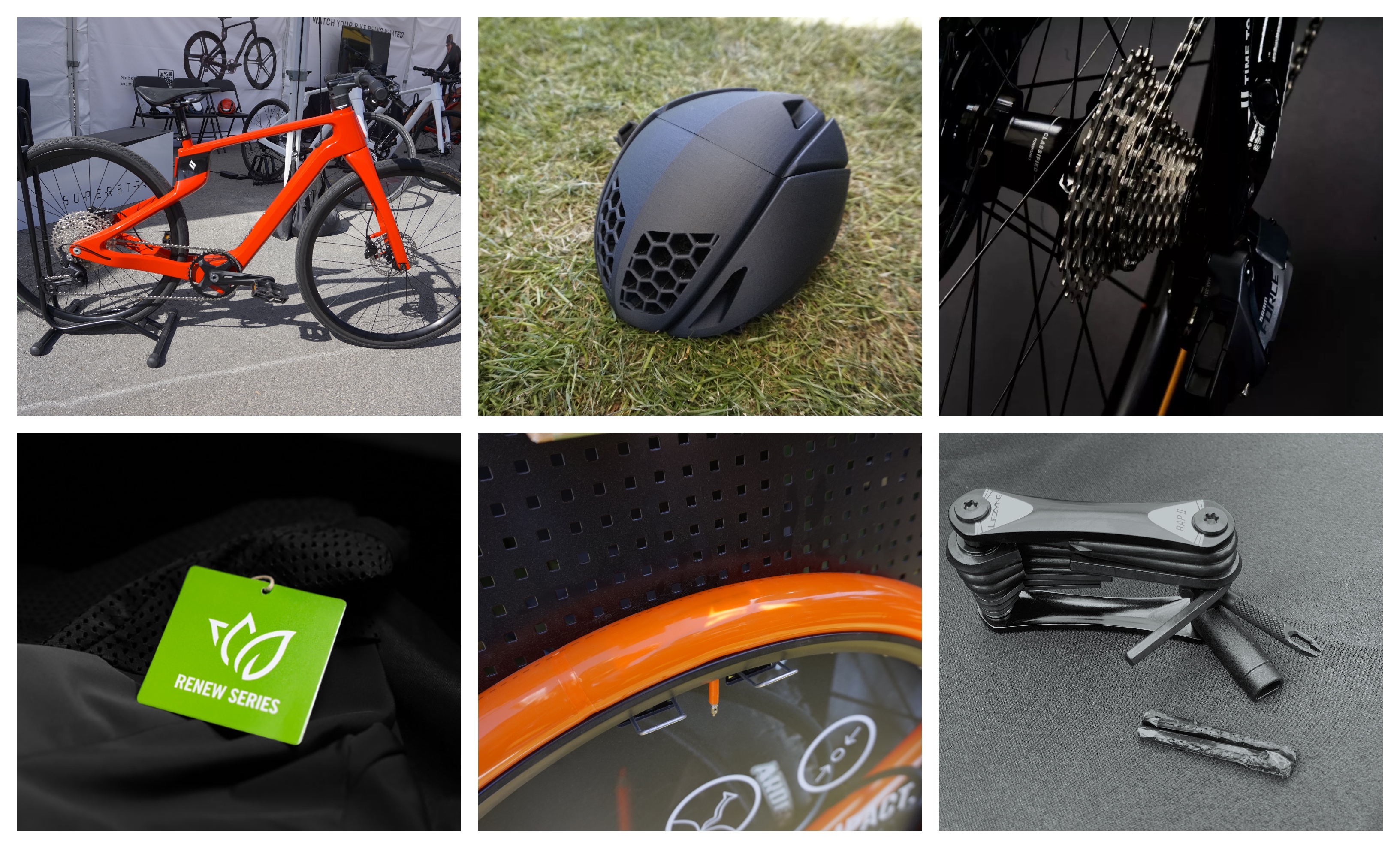
The latest race content, interviews, features, reviews and expert buying guides, direct to your inbox!
You are now subscribed
Your newsletter sign-up was successful
Joining some 74,000 people from all over the world, Cycling Weekly was on the ground at the 2022 Sea Otter Classic in Monterey, California, this past week.
Known as the biggest cycling gathering in North America, the four-day festival showcases products from hundreds of brands. The Leguna Seca Raceway venue also hosts thousands of athletes as they compete in some 300 pro and amateur events. Just about every bike racing discipline is on offer, including gravel, cross country, downhill, dual slalom, short track racing, circuit, criterium, and road racing. For the industry, it’s an opportunity to see and showcase new products, network and do business.
Stefan Abram already rounded up the shiny new products that launched at the event, but here’s a closer look at the trends and products that piqued my interest.
Trend: 3D Printed Carbon Products
Helmets, saddles, and even entire bike frames —3D printed products seem to be an emerging trend albeit in early stages yet.
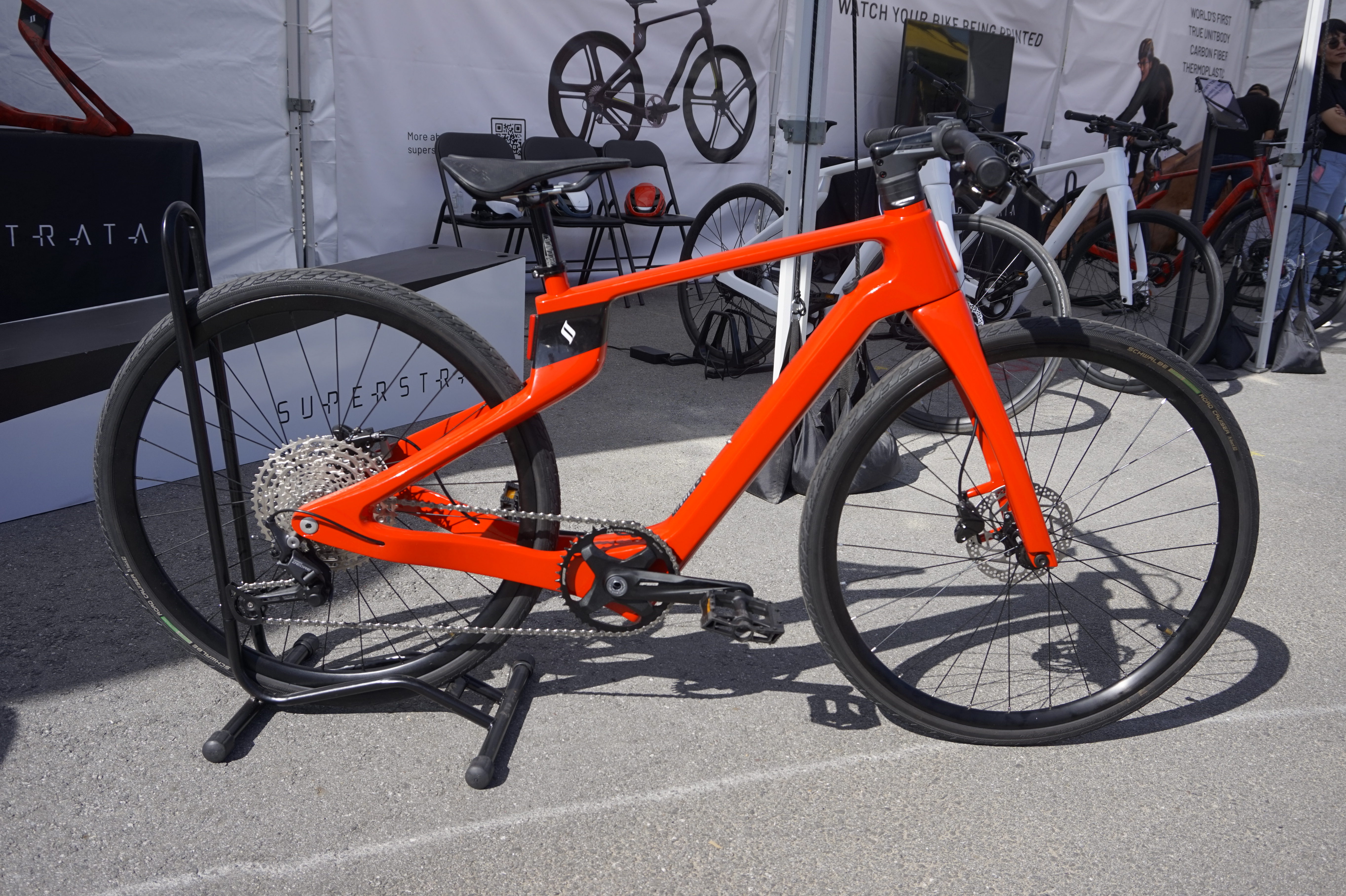
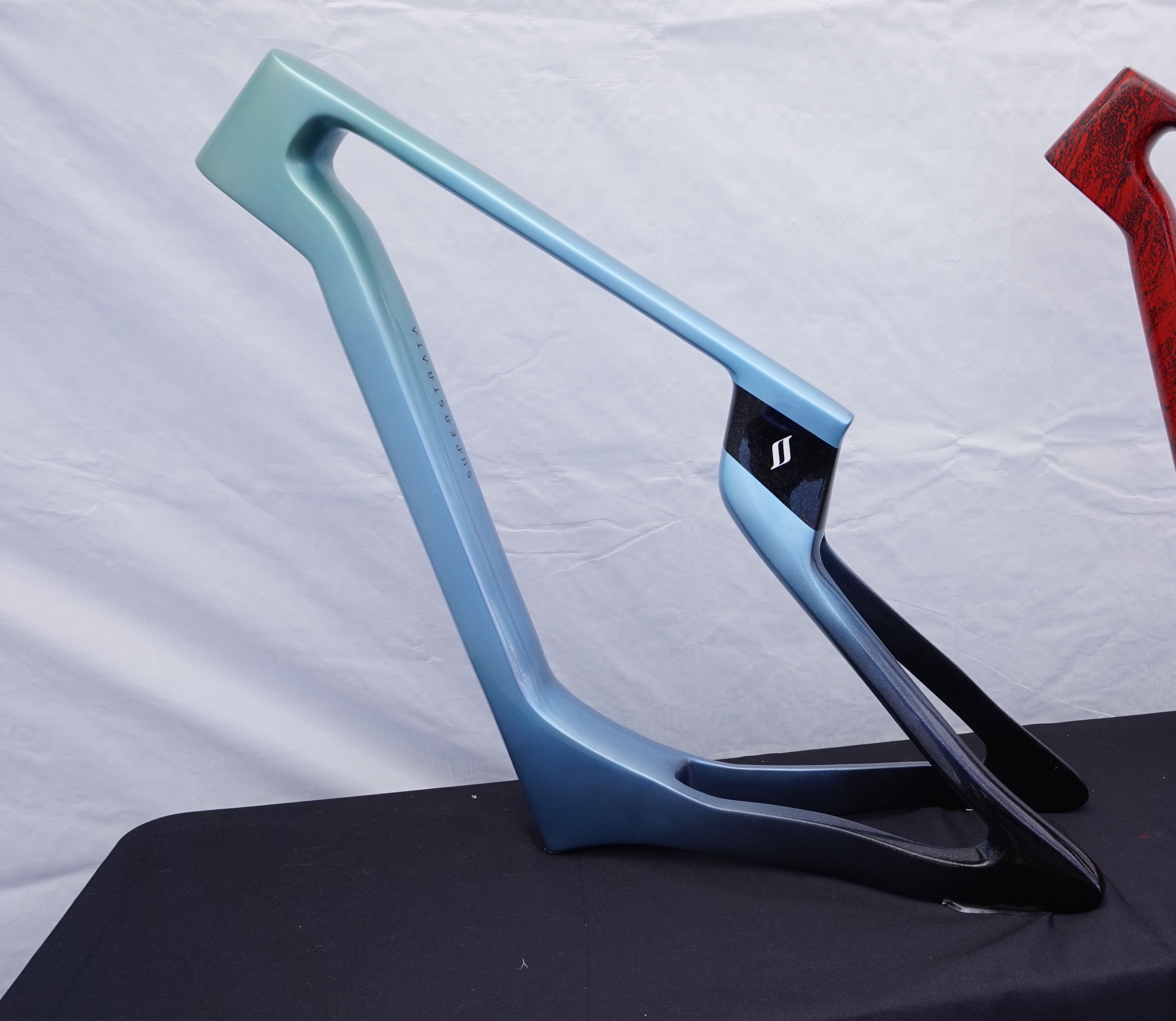
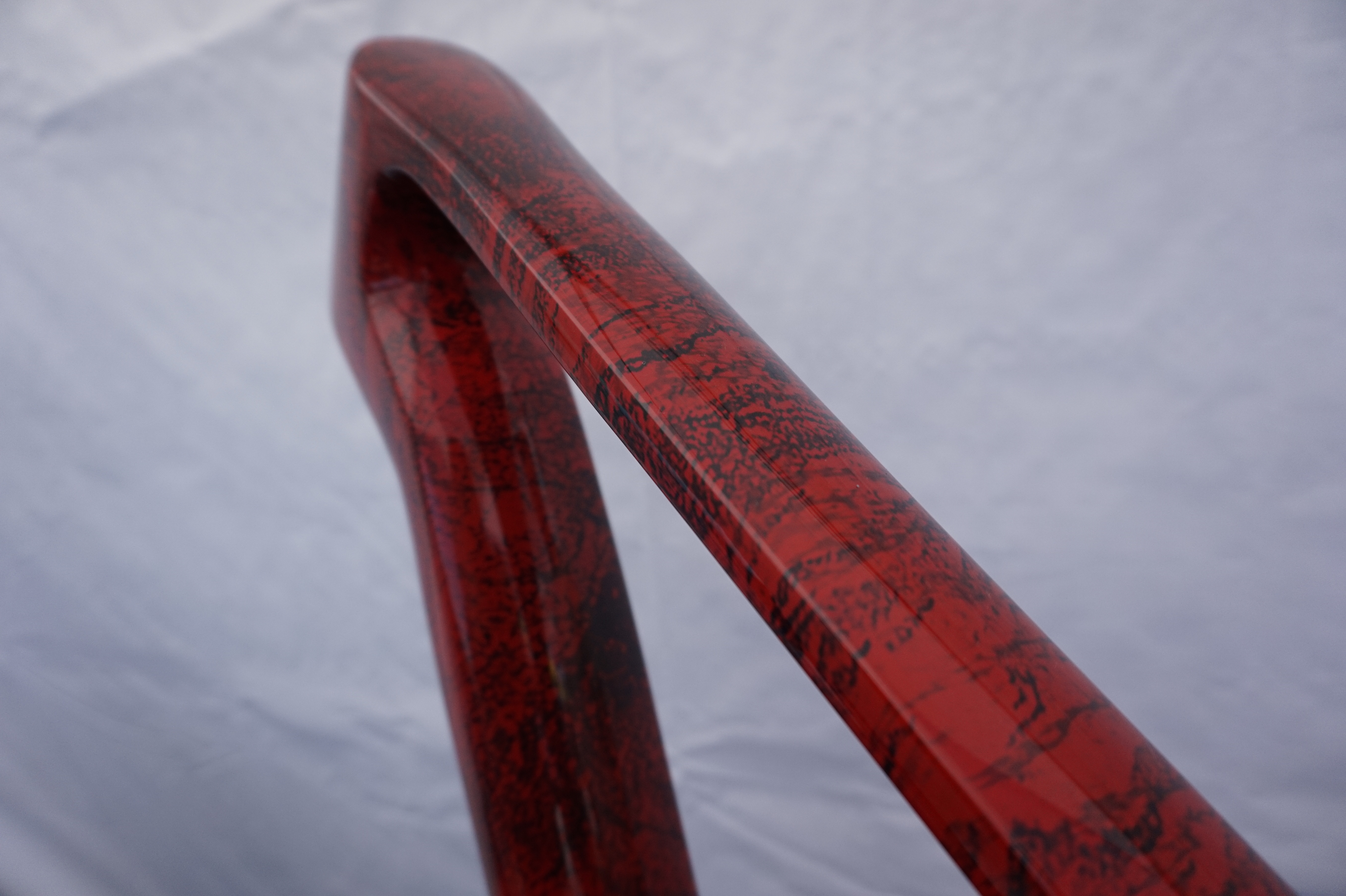
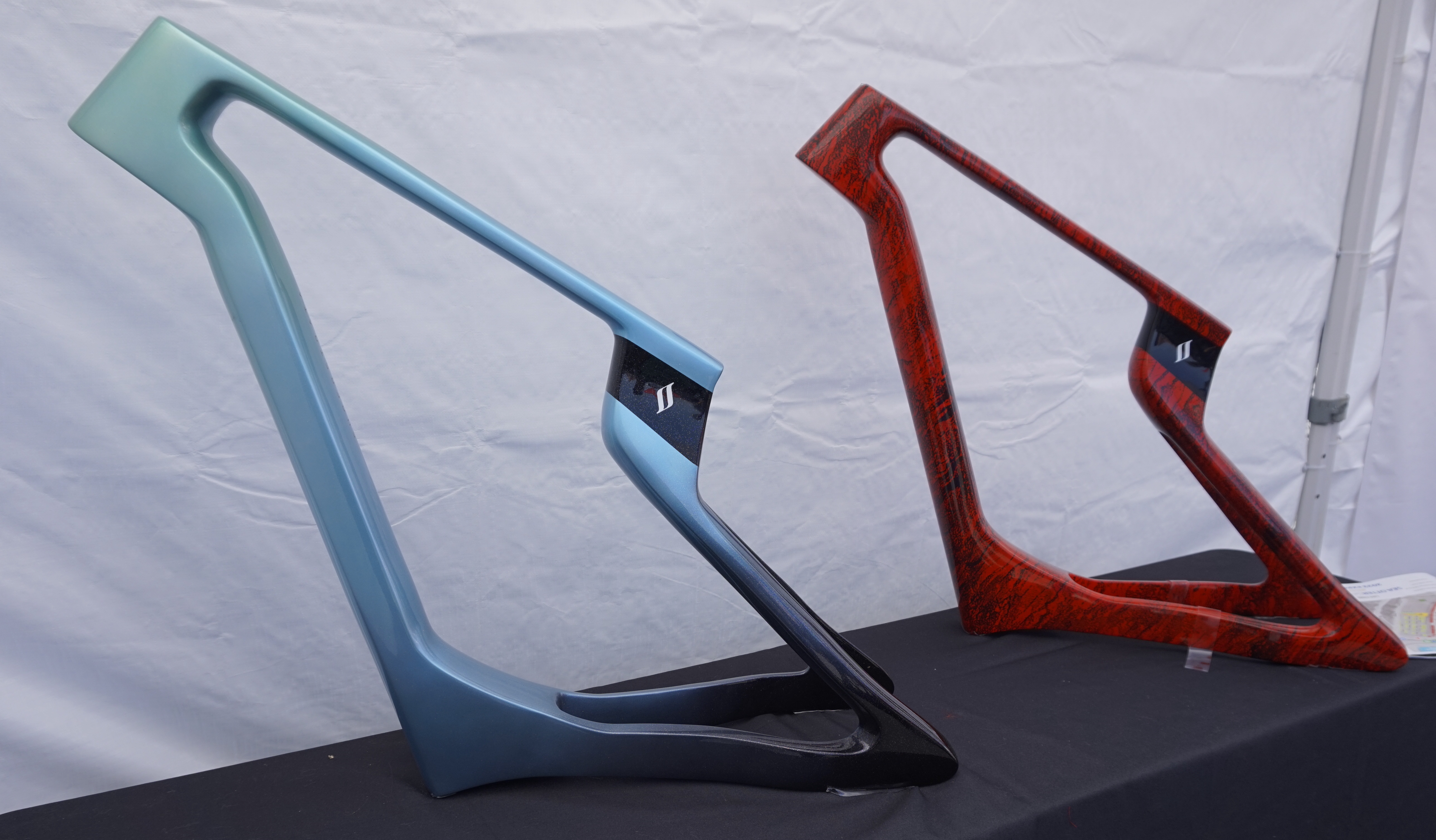
Superstrata: The World’s First 3D Printed Unibody Carbon Bike Frame
Avero’s bicycle brand Superstrata showed off their fully custom, 3D printed carbon bike frame. A first of its kind, the frames are made of a single, continuous piece of carbon and made-to-order according to a customer’s individual measurements and preferences.
A prototype of this bike first surfaced in 2018, and the company has since fine-tuned the printing process and, according to the brand's representative at the booth, put some 3,000 bikes out in the world. As a start-up company, Avero has been developing the technology on their own, and received more than $7 million in crowdfunding support. With that said, some 3400 comments of often-times disgruntled backers would suggest that most orders have yet to be fulfilled.
The latest race content, interviews, features, reviews and expert buying guides, direct to your inbox!
According to a brand, the Superstrata frame takes about 28 hours to print and can be tailored to a rider's height, weight, arm and leg lengths, riding position, riding discipline and even, the customer’s preferred stiffness level. Taking into account various build kits and paint schemes, they can accommodate more than 50,000 possible variations.
The frames are made of a carbon fiber thermoplastic composite, as opposed to traditional thermoset composite, which is said to make the frame three times more impact resilient and exceeds ISO standards.
The Superstrata is available in full builds only with two base models: the Terra and the Ion e-bike. The framesets have a claimed weight of around 1kg to 1.2kg and have built-in front and rear lights.
Full builds range between $2700 and $7000.
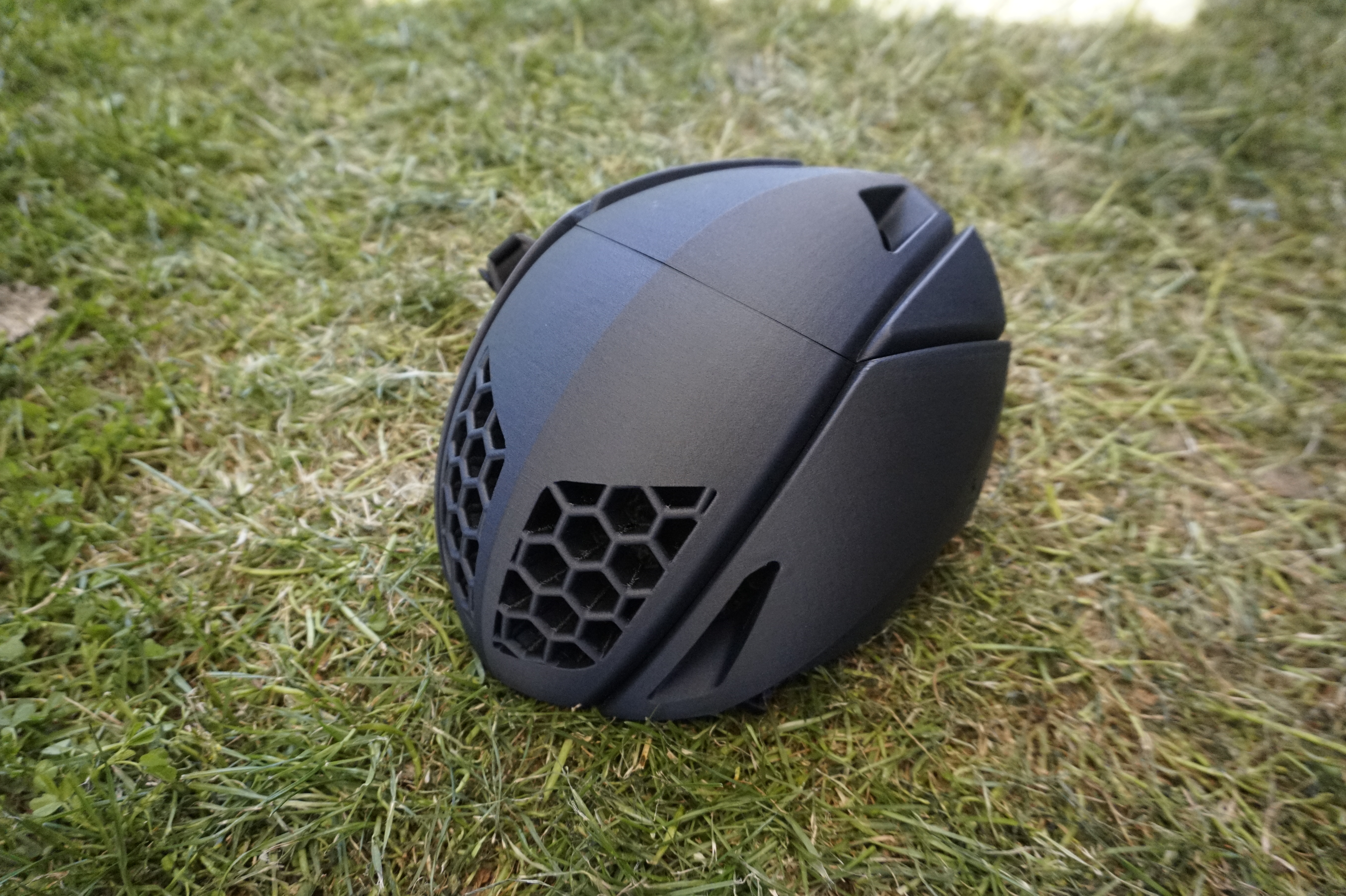
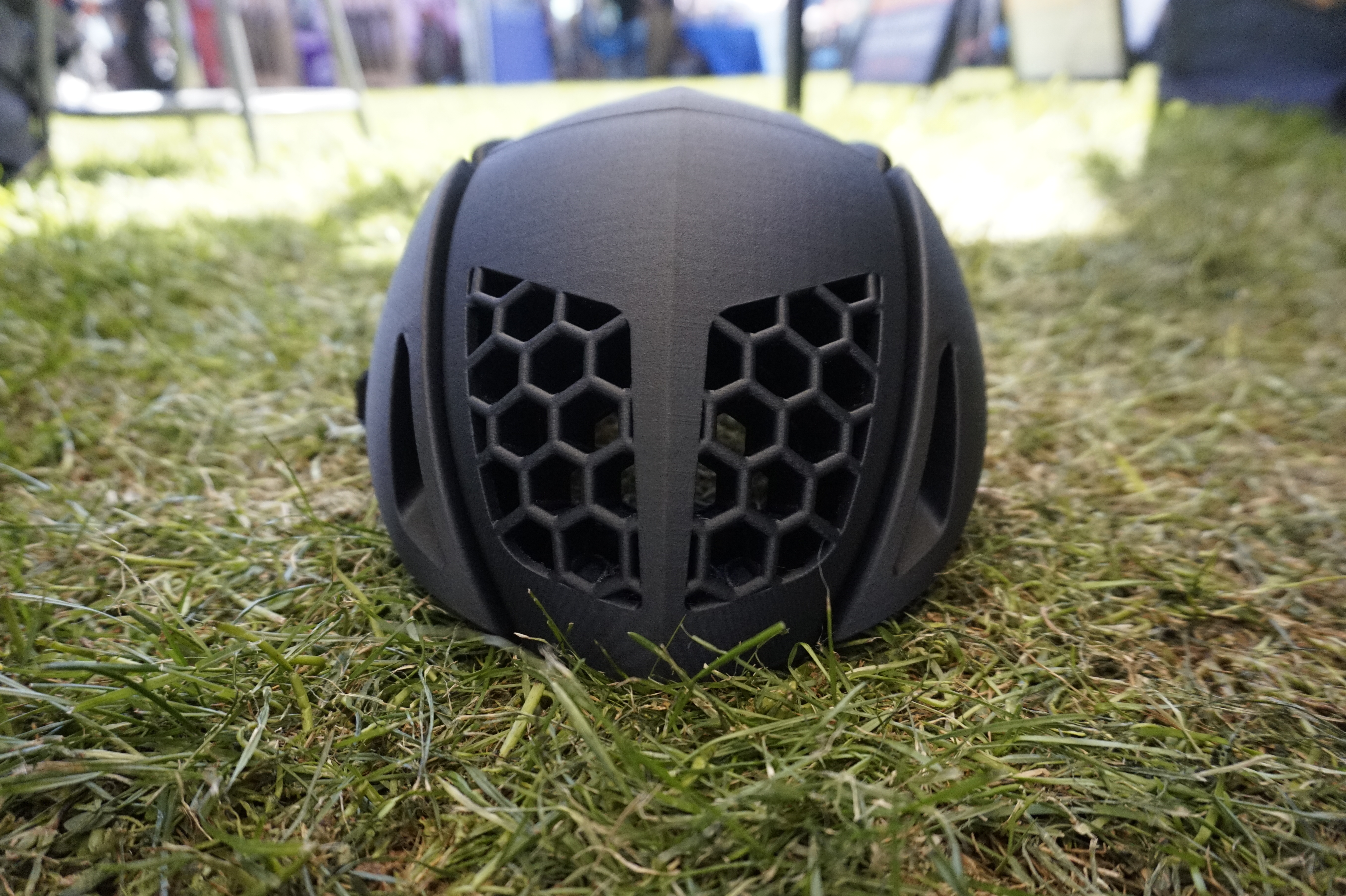

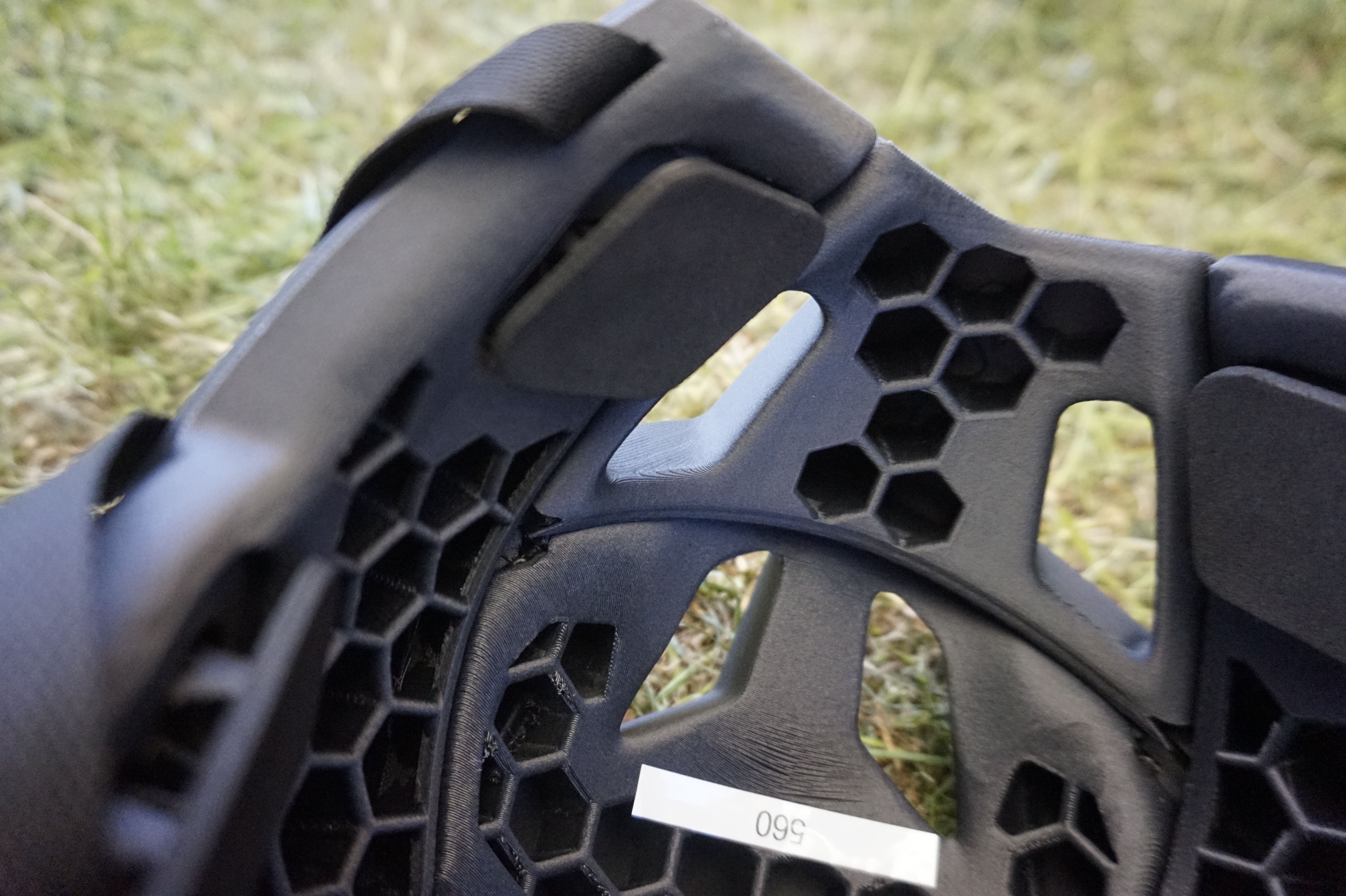
KAV: 3D Printed Helmets Shaped to Your Head
The California-based helmet manufacturer KAV promises a 'helmet with no compromises' and a fit like none other.
Made of a thermoplastic elastomer and nylon carbon composites, these all-new 3D printed helmets are made-to-measure to your unique head shape and printed in a mere 24 hours.
Starting production in May, the company promises a three-week turnaround from the moment you submit your precise measurements to receiving your unique helmet. To help you get the best fit possible, the company will send a product-specific measuring kit to your doorstep.
Available in its raw state only, the helmet weight depends on your head shape and amount of material needed, but should fall between 275 and 300 grams.
Since the helmets are printed to fit, there is no traditional wrap-around retention system. Instead, seven spring-loaded pads keep the helmet in place. There's enough room between your skull and the helmet to allow for ventilation and/or a cap and ponytail. The coast for all this? $390 USD.
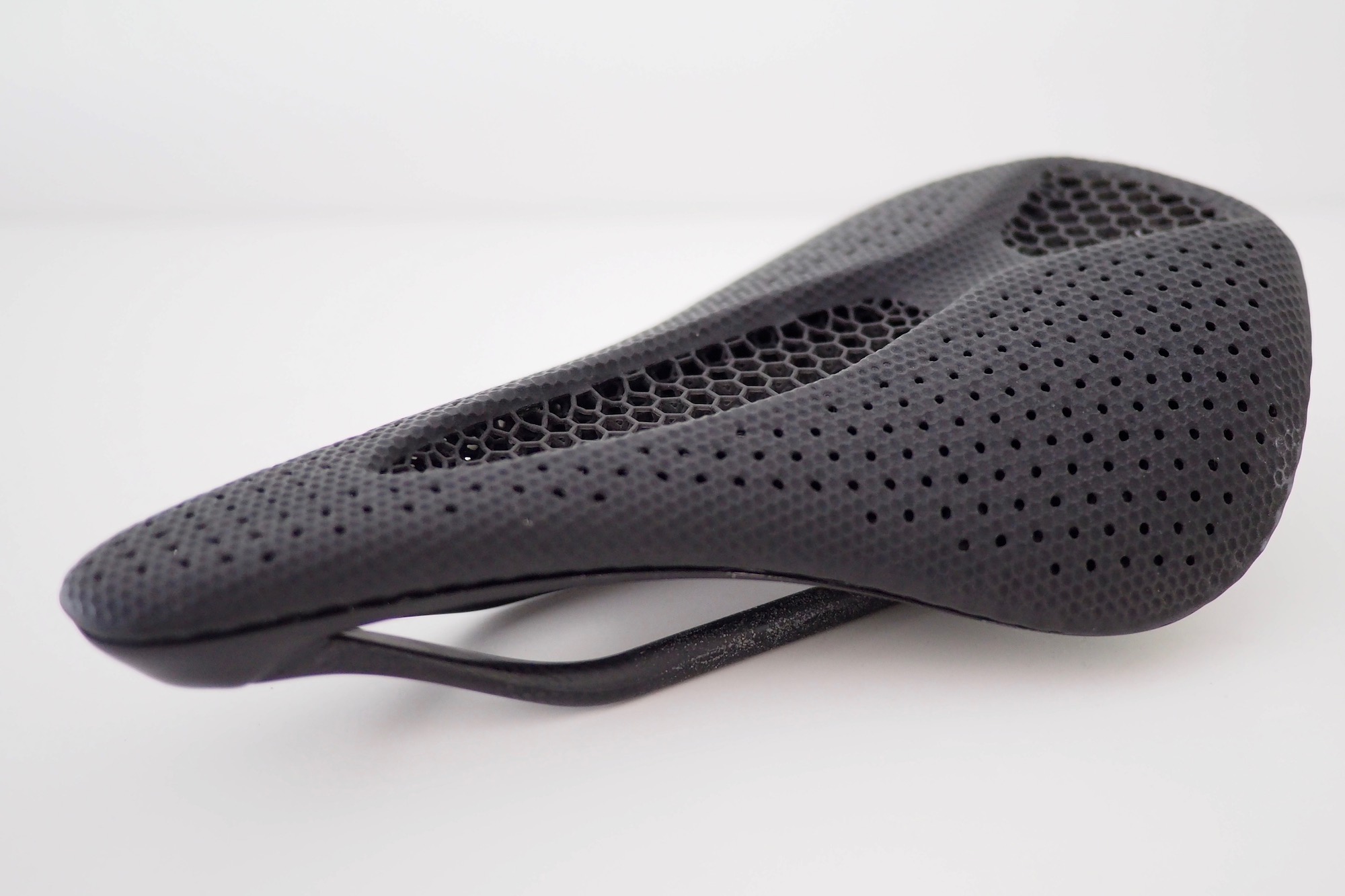
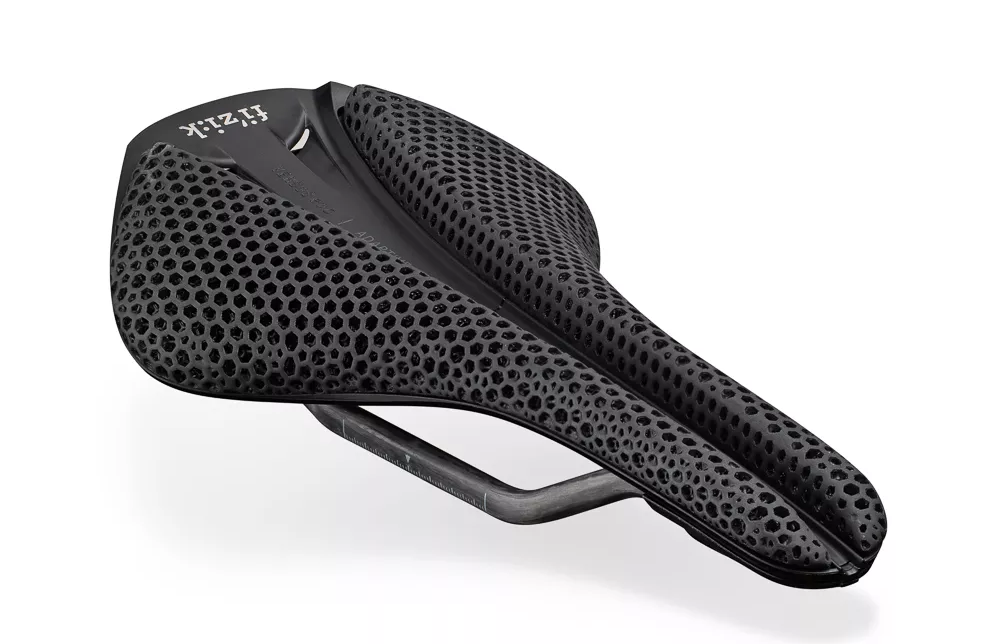
3D Printed Saddles
Not new per se, but still part of the emerging use of 3D printing, Fizik and Specialized both had their 3D printed saddles on display.
As early adopters of 3D printing, Fizik and Specialized both turned to a company called Carbon for their innovative saddles. The Silicone Valley-based Carbon is a high-tech material manufacturer that specializes in liquid polymer and Digital Light Synthesis — a leading-edge 3D printing technology.
Both brands revealed lightweight 3D printed versions of their most popular saddle models as early as 2019. The claimed benefit to the complex 'honeycomb' structure is being able to infinitely tune the material’s density in a way that was impossible with traditional foam (i.e: firm in some places, more forgiving under the sit bones).
Fizik's 3D printed line is called Adaptive and features three models: the Antares Versus Evo Adaptive 00, R1, and R3.
Each of these models sport a traditional looking base with a 3D printed polymer upper. Prices range from $259.99/£249.99 for the R3 model up to $399.99/£399.99 for the 00 model.
Specialized offers its 3D printed tech on the S-Works Power with Mirror technology and the Romin Evo with Mirror. Both saddles combine the polymer with the flexed-tuned FACT carbon shell and ultra-light rails, for a whopping $450/£390.
These saddles suggest that completely customizable, made-to-measure 3D printed saddles are In our near future.
Trend: Sustainability
We'd like to think that this is a 'trend' that's just beginning, and a direction that is well and truly here to stay. While biking may be a green mode of transport, the sport and the industry's manufacturing is anything but. And so as the industry grapples with its environmental impact, more sustainable products are emerging.
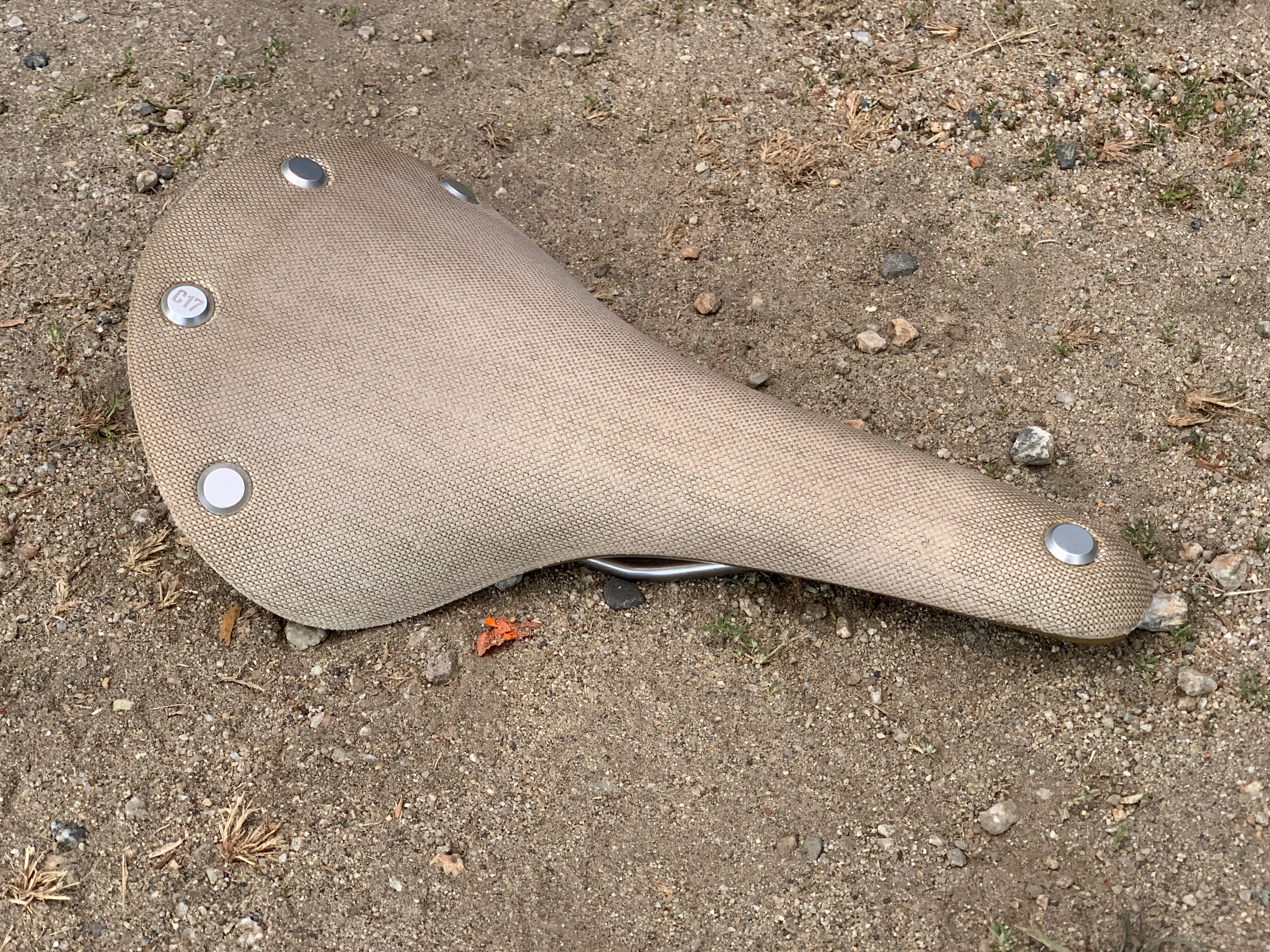
Brooks' Limited Edition C17 Special Recycled Nylon
Launched in March 2022, the C17 Special Recycled Nylon saddle is Brooks' "ecological approach to long-lasting comfort."
The limited edition saddle pairs recycled, sustainable and biodegradable materials with the classic Brooks design.
Materials include flexible natural rubber that's harvested from trees, an abrasion-resistant and waterproof recycled nylon for the top, and biodegradable Liquid Wood for the nose-piece and saddle plate.
Available in either black or tan, the saddles retail at $150/£120, which is $20 above the price of a standard C17 saddle. Brooks' Marketing Manager Carlo Ferrero told us that the price increase reflects the increased costs of manufacturing and sourcing the sustainable materials.
The recycled nylon, for example, is made from industrial remainders that were converted into nylon yarn and woven into a fabric, eliminating the need to use new materials. Likewise, the liquid wood is biodegradable biopolymer made from byproducts from the industrial paper production industry.
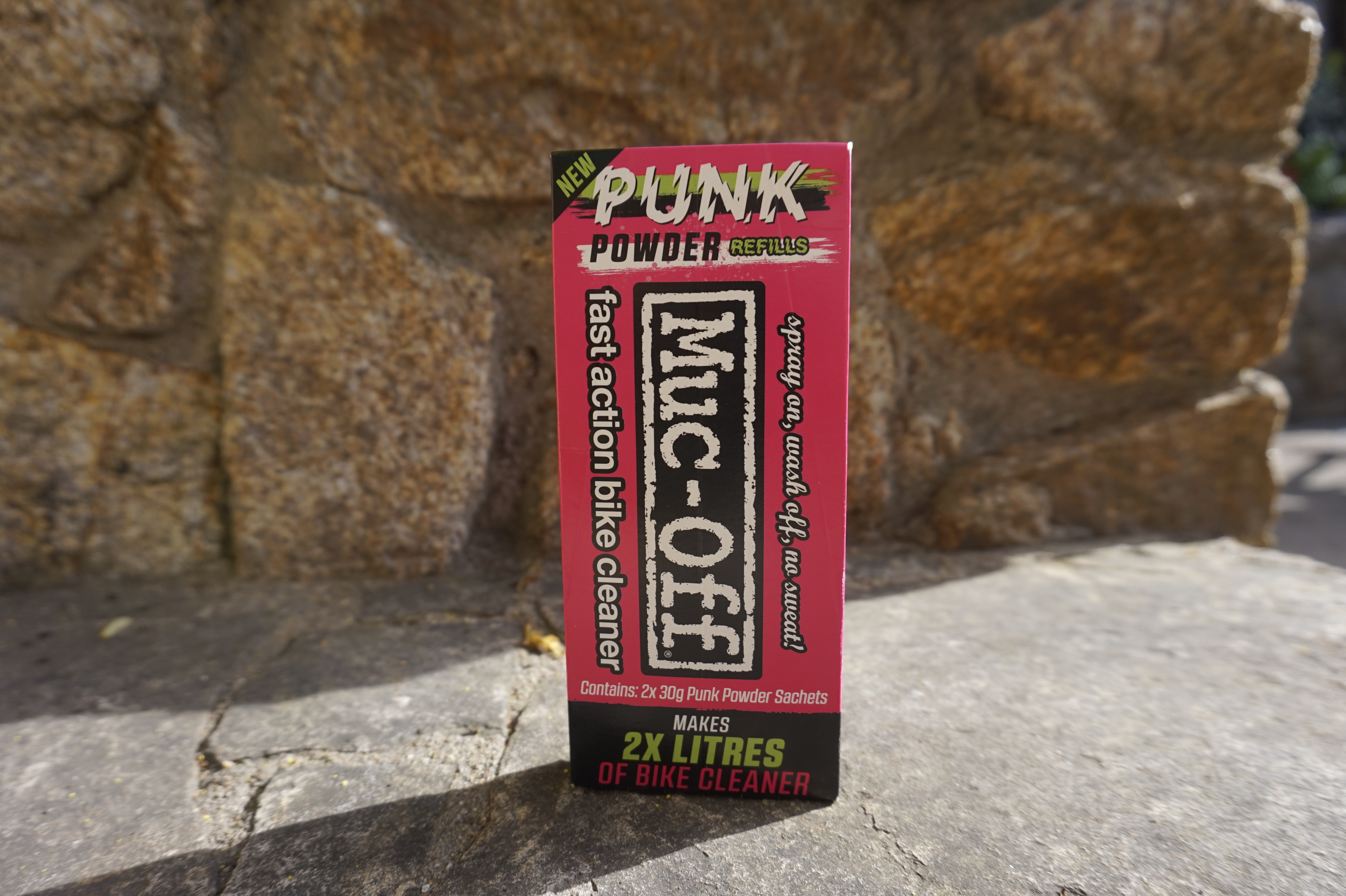
Muc-Off's Punk Powder
The cleaning solution without the bottle. Muc-Off has turned its distinctive pink cleaning solution into a water soluble powder so you can mix it with a liter of water in an existing bottle at home — therefore reducing its packaging by 92 percent.
The 'Punk Powder' solution not only supports Muc-Off's commitment to reduce plastic, the formula itself is 75 percent plant-based, and the sachets containing the powder are compostable as well.
Users can either use an old bike cleaner bottle to mix the powder or purchase a reusable aluminum ‘Bottle for Life’. The solution can be mixed with tap water or even rain water.
"We rely on nature for fun so let’s not ruin it," said Muc-Off's Steve Fearn. "It's been part of the brand ethos since 1984."
The brand is well on its way of meetings its own ‘Project Green’ goals, which is to cut down on 200 tonnes of plastic by 2023.
Fearns told us that they're already 150 tonnes there, and are continuing to make improvements to their products. This improvements include limiting packaging, removing PTFE from its lubes and making their flagship products biodegradable.
The ‘Punk Powder’ comes in 30g pouches, which will make a liter of cleaning solution. A two pack of pouches, 2 liters of solution, retails for $19.99/£14.99.
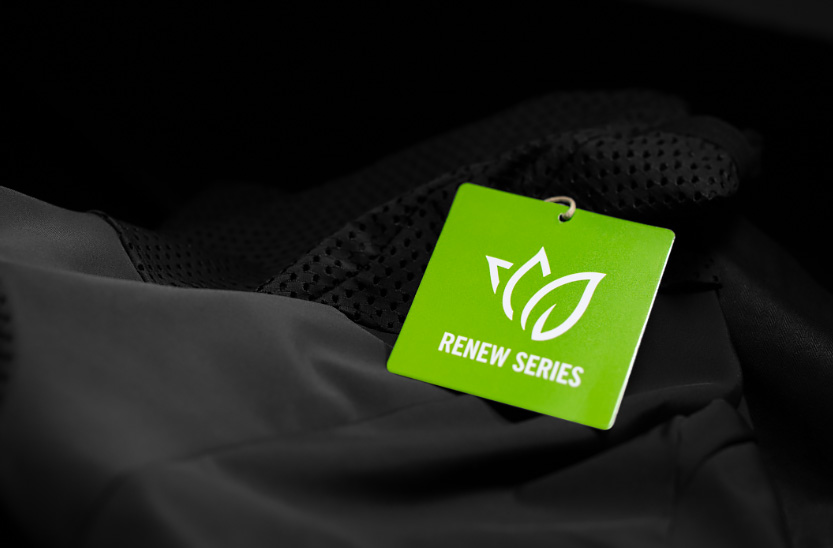
Recycled Fabrics
Giro's Cycling Kits with Less Impact
Those paying attention to the clothing labels of Giro's newest apparel lines will have come across the "Renew Series" patch. In 2020, Giro made the commitment to use sustainable materials in every new apparel product they launch.
Clothing that is part of this series is made with recycled nylon, polyester, elastane and Econyl Lycra that's derived from reclaimed fishing nets and other ocean debris. At least 50% of the finished product must use fabrics and materials with recycled content to earn the Renew Series designation.
"The products provide 100% of the comfort, performance and durability you expect from Giro, while reducing environmental burden and improving the health of our oceans and planet," the brand states.
At this time, 54% of their entire apparel line uses recycled materials, and 55% using bluesign approved materials. Like Muc-Off, Giro is moving away from PTFE and DWR technologies, opting for PFC-free waterproof coatings instead.
You'll see these recycled materials in the recently updated Chrono Elite line, zipper-free Ride Jersey and Ride Short.
Showers Pass Waterproof Jackets
Likewise, Portland-based company Showers Pass used the Sea Otter Classic to showcase their new Century CC Jackets, adding to their growing line of sustainably manufactured cycling apparel.
Waterproof and windproof, the Century CC Jacket is built using 44% recycled materials with fully seam-taped Artex 2.5-layer breathable performance fabric. The Century CC Jacket is also part of Showers Pass’ Clean Color collection, which are garments made with eco-friendly dyes that keep harmful chemicals out of the manufacturing process.
"For over two decades, we've focused primarily on quality and durability in product development, earning us a reputation for long-lasting gear. While that does contribute to the sustainability of our business, it is not enough. That's why, in 2019, we took a deep look at how we operate to identify what more we needed to do to become climate positive," the brand states.
To that end, Showers Pass set a series of sustainability goals to be met by 2025. These goals include producing new products with a minimum of 50% recycled content, using only environment-friendly and bluesign approved dyes, using wool from farms that treat animals humanely, developing a product end-of-life recycling program, and reducing both their packaging and energy use.
Trend: Clever Integrations
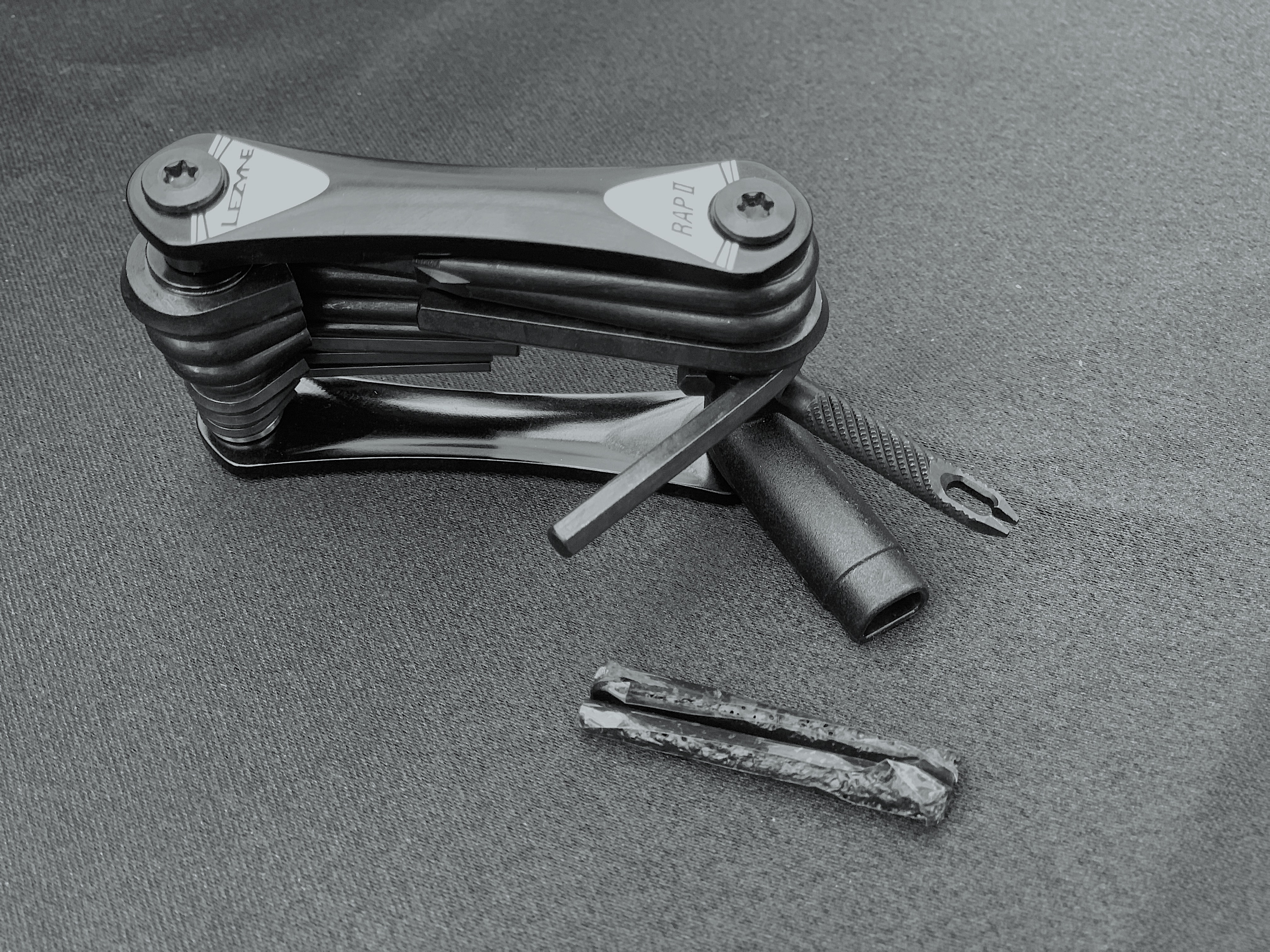
A multi-tool with tubeless tire plugs
It's not often that a multitool catches my attention, but the Lezyne Rap II Tubeless did just that. Why? Because this multitool integrates a tubeless plug tool (—which Lezyne calls a 'tubeless needle'—) and the rubber strips in a very clean and neat way. It eliminates the need for a tubeless plug kit, thereby allowing you to carry one less thing.
The Lezyne RAP II Tubeless is a 13-function multitool with 2, 2.5, 3, 4, 5, and 6mm Hex extensions as well as Torx 10, 25 and 30 bits, Phillips and flathead screwdrivers and finally, a plug insertion tool and carrier containing two strips. The tool and carrier fold away from the tool like any of the other extensions and lie flat when folded up.
The tool bits are made of a black anti-corrosion steel and the side plates are ergonomically machined aluminum. All this comes in a small contained package weighing a mere 140g and with a MSRP of $29.99/£24.95.
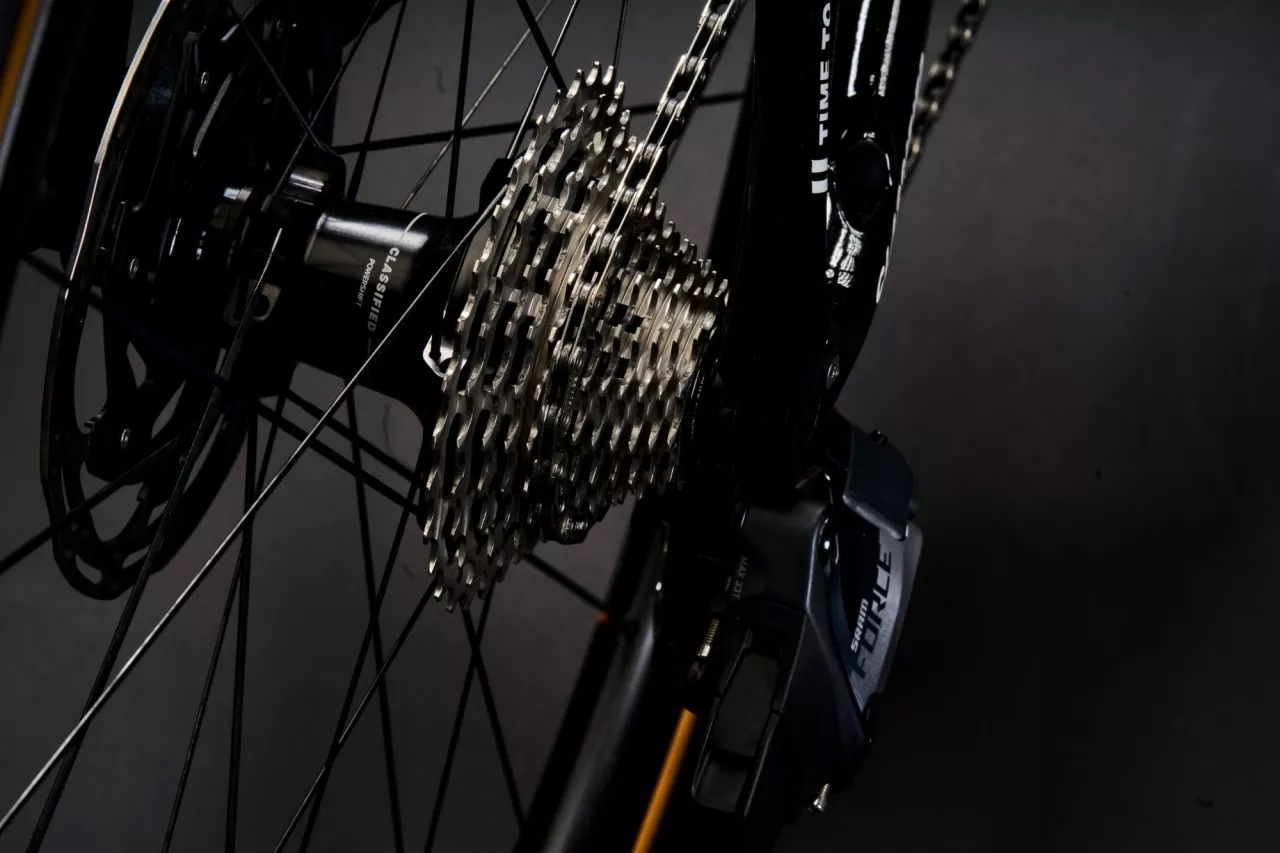
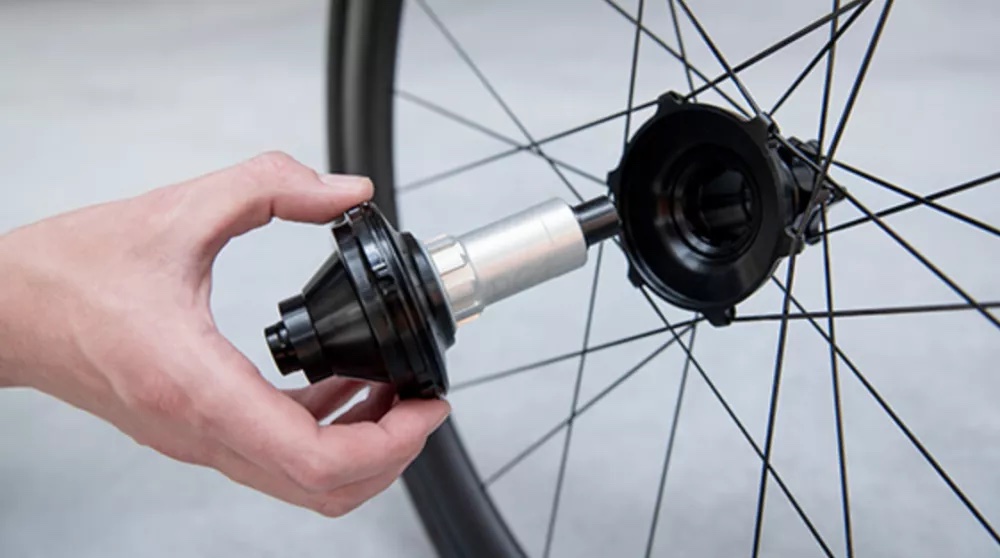
Classified: Revolutionized Shifting
Former world champion and four-time Paris-Roubaix winner Tom Boonen was a major attraction at the Classified tent at the Sea Otter Classic, as was the Powershift system itself. Boonen is one of three owners of the company that's slated to revolutionize how we shift between gears.
Some eight years in development, Classified offers a wireless 2-speed shifting system integrated in the rear hub — effectively replacing the need for a front chainring.
The rear hub is internally geared and can switch between two speeds with the push of a Bluetooth button located on your handlebars. The 30 percent change in gearing acts much like a two-ring front crankset does. Essentially, you get the aesthetics and benefits of a 1x system with the gear offering of a 2x system.
Best of all, this shifting system allows you to change gears in a split second and under full load, no matter the terrain. No cross chaining, no shifting lag, and fewer dropped chains.
Having tried the setup myself, I speculate that this may be the first new shifting technology that could rival (or be bought by) the current main players.
Boonen told Cycling Weekly that not only has Classified received UCI accreditation, some riders have already been testing the system. The system is available for purchase in 11- and 12-speed options through select retailers, albeit at a rather steep price of €2,399.
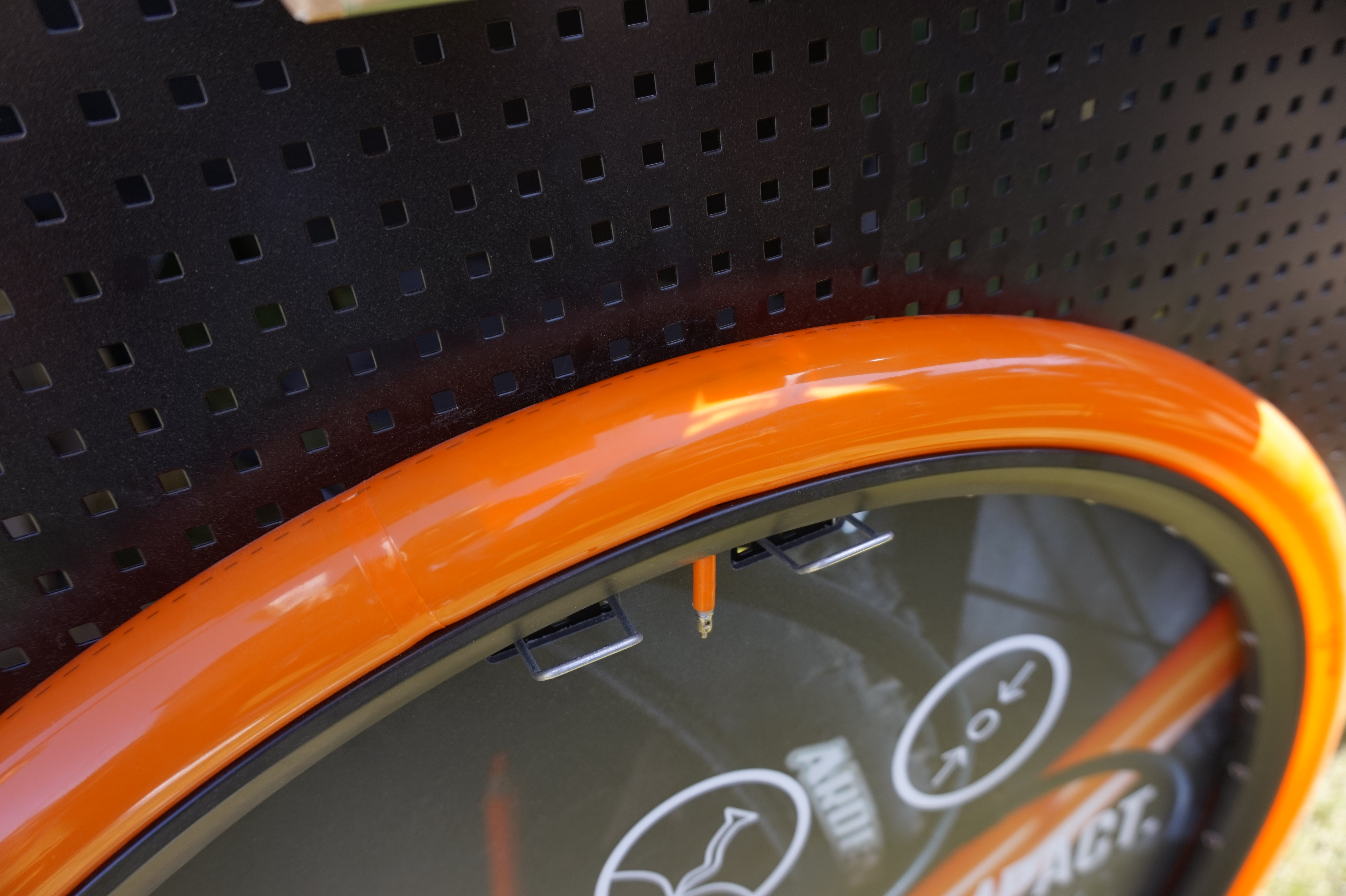
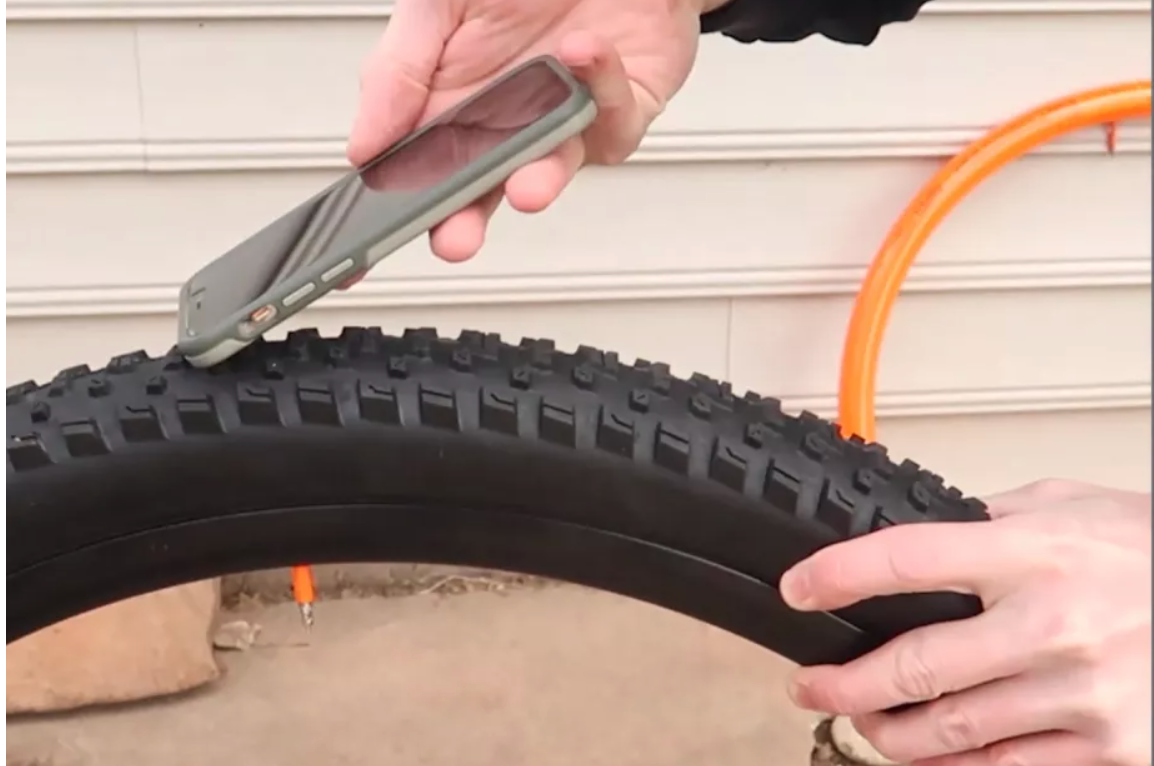
Tubolito PSENS: World's First Smart Inner Tube
While many are moving away from innertubes altogether, Tubolito is making them smarter. The Austrian brand showed off their Tubo-MTB PSENS tube, which isn't just lighter and more puncture-resistant than a standard butyl tube, it can also connect to your phone to give you an accurate and current pressure reading.
A battery-free NFC chip is integrated into the tube to allow riders to measure the current tire pressure with the help of the Tubolito phone app. The chip's weight is negligible and barely visible in the tube. You simply pump up your tire, hold your app-loaded phone close to the valve, and viola! The current tire pressure will be reported in bar and psi measurements.
The tube itself is made of thermoplastic elastomer (TPU) instead of butyl, which impresses with its low weight, low rolling resistance and small pack size.
PSENS technology is currently available only in the mountain bike branded tires but as long as you're running 700c or 650b wheels with tires that are 45mm or larger, these will be perfectly compatible.
This technology does come at the lofty price of $49.95 / £41.99 / 44.90€ per tube.

Cycling Weekly's North American Editor, Anne-Marije Rook is old school. She holds a degree in journalism and started out as a newspaper reporter — in print! She can even be seen bringing a pen and notepad to the press conference.
Originally from the Netherlands, she grew up a bike commuter and didn't find bike racing until her early twenties when living in Seattle, Washington. Strengthened by the many miles spent darting around Seattle's hilly streets on a steel single speed, Rook's progression in the sport was a quick one. As she competed at the elite level, her journalism career followed, and soon, she became a full-time cycling journalist. She's now been a journalist for two decades, including 12 years in cycling.
